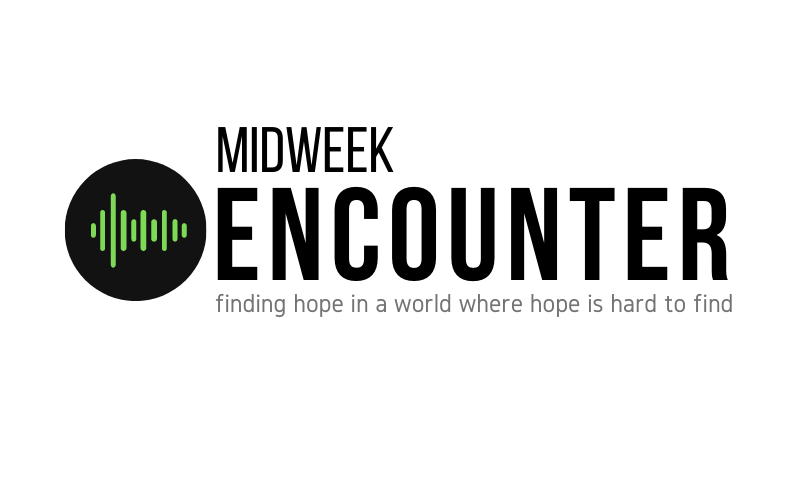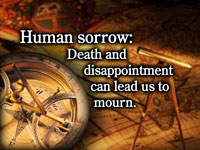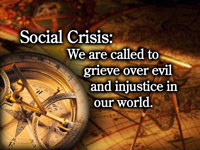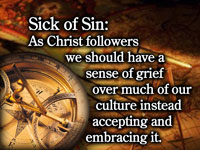



This is the second sermon in a series entitled Quest for Faith. For however long it takes we are going to be tracking through chapters five, six and seven of the book of Matthew. Why would we take so much time to and draw our attention to this teaching of Jesus Christ? What makes it so important? As I stated last week, Jesus took the twelve men he called disciples up the side of a mountain to get away from the crowds and teach them the basics of Christ following. The crowd followed and truly had to be amazed at what they heard.
These twelve disciples had before this just been part of the larger crowd but this one single act of Christ in calling them apart separated them from their peers. They had already left all and were following Him. With each piece of this teaching the disciples become more and more separated from the crowd. With each of these beatitudes that we study you will see or maybe even feel a tension building inside of you. They are unnatural. Living this way is counter-culture and is definitely going against the flow of society.
This morning we come to the second teaching of Jesus in this sermon and the words are simple yet profound.
“God blesses those who mourn, for they will be comforted.”
The world loves to laugh! There is always someone around to produce a comedy movie or play. Comedians are everywhere. From the worst of the worst on American Idol to Andy Griffith reruns. We enjoy and feel comforted by laughter. As with so much of Jesus teaching it runs counter to the accepted norms of society. Nobody I know would go into mourning in order to seek comfort.
No one really likes to cry do they? Is there anyone who enjoys bad news and looks forward to that phone call or knock on the door which leads to genuine brokenness? I think all of us live with the notion that in a second of time a normal day or a normal life can be turned upside down.
The traumatic experiences of life can leave us reeling with grief, marooned on an island of mourning and sorrow with no end in sight. But is that what Jesus was teaching when He said we would be happy or blessed if we were mourning?
Jesus seems to be teaching that the way to find comfort is through a period of tears and intense sorrow. Today we need to spend a few minutes exploring and identifying what kind of sorrow or mourning He is speaking about. I believe that He is declaring a spiritual principle, a spiritual mourning and not just things viewed from a human standpoint.
Mourning is something that should be a part of our lives even when the sun is shining and you may feel as though you don’t have a care in the world. You may be on a beach with absolutely perfect weather or in a mountain retreat enjoying the sound of the woods and nature and even in those circumstances there is a place for mourning.
There are three possible causes of mourning from a biblical perspective that we should be aware of and practice:  1. Human sorrow: Death and disappointment can lead us to mourn.
1. Human sorrow: Death and disappointment can lead us to mourn.
There is an Arab proverb that says, “All sunshine makes a desert.” Believe it or not if you and I were to live our lives in perfect bliss with never a time of sorrow or challenge it would be unbearable. It would lead us to a withering of our soul.
Sorrow adds spice to our lives. We don’t feel that way when we are walking through a major disappointment or death but somehow even through the loss of a loved one if we mourn correctly and allow it to work in us we becomes stronger people for it. James Montgomery Boice wrote, “It teaches us to appreciate the good things. It increases our sensitivity, particularly to the needs and sorrows of others.”
One pastor polled his large congregation to find out exactly what was the greatest cause of grief in their lives. To his surprise a majority listed as the greatest single human factor a feeling of personal desperation, a sense of being a the end of their resources.
There is often much said about the Five Stages of Grief. Dr. Elisabeth Kubler-Ross is given credit for naming these stages. They serve a purpose so let me give them to you as a reminder today. Many of us go through these emotions on almost a daily basis. The stages are: denial, anger, bargaining, depression and acceptance.
We often use these to cope with everyday traumas. As an example, apply the 5 stages to a traumatic event most all of us have experienced: The Dead Battery! You're going to be late to work so you rush out to your car, place the key in the ignition and turn it on. You hear nothing but a grind; the battery is dead.
The trouble is often times it can be more than a dead battery that causes us to grieve. Someone suggested the following acronym to help us after the five stages:
T = To accept the reality of the loss
E = Experience the pain of the loss
A = Adjust to the new environment without the lost object
R = Reinvest in the new reality
In American culture we have a ritual of funerals that include showing up at the funeral home to offer comfort and if you are really close you go to the funeral itself. If you are family you eat together afterwards. We kind of have it down and go through these motions almost like a well oiled machine. Study other cultures where they understand grief and you will find them taking extended periods of time to just sit and be with each other. They will do symbolic things with the idea of understanding death and finding comfort in the midst of it.
I want to keep this quote out there, remember the phrase bitter or better because it applies to these kinds’ sorrows in our lives.
There is much that could be said about this kind of grief and I don’t want to minimize it in any way but do you think that this is the only kind or cause of grief?  2. Social Crisis: We are called to grieve over evil and injustice in our world.
2. Social Crisis: We are called to grieve over evil and injustice in our world.
There is probably no greater teaching that the church needs to hear and be called to than this. Too often churches have found it easy to walk away from social needs. That even sound ridiculous to say out loud but I am afraid it is true. While we are to be about the business of making disciples there is nothing that is taught more by Jesus Christ than that we are to be concerned with the poor. We are to care for those who are suffering.
Christianity is about caring for other people. It should produce a sound social conscience and in fact if it does not, we have some reason to doubt our Christianity.
We read John’s words in the Bible: “We know that we have come to know him if we obey his commands. The man who says, ‘I know him,’ but does not do what he commands is a liar, and the truth is not in him.” 1 John 2:3-4
What are those commands?
“Love your enemies and pray for those who persecute you.” Matthew 5:44
“In everything, do to others what you would have them do to you, for this sums up the law and the prophets.” Matthew 7:12
“Give to everyone who ask you" Luke 6:30
“Be merciful, just as your Father is merciful.” Luke 6:30
“Let your light shine before men, that they may see your good deeds and praise your Father in heaven. Matthew 5:16
An awareness of injustice in the world should produce a sorrow in the heart of an authentic Christ follower. Christian should never stand very far off from the great social causes of the day or worse yet be critical of them. Christians should be in the lead of social reform. We should be the greatest champions of helping the poor. Not with more government handouts but with involvement that takes time, money and personal resources.
I am often bemused at how political Christians have become. Too often they will find a candidate that agrees with them on about the same two issues every year and the next thing you know they are putting all their hopes in that man or woman. I have to tell you, that doesn’t always work out. There are many issues in the world that ought to cause us to pause and think a little deeper than the evening news. Maybe we ought to think even a little deeper than just focusing on the family. Maybe there are bigger issues that ought to cause us to read and study beyond the morning paper.
You want or need something to cry about? Let me give you a list. How about grieving over nearly 3000 men and women who have laid down their lives in the last 3 or 4 years in Iraq and Afghanistan and the fifty thousand more who are coming home with serious physical problems? You could grieve for the hundreds of thousands of Iraqis who have died, many of them innocently. There are Christians in areas of the world like Iraq and Afghanistan. There is a significant number of Palestinian Christians and yet the average Christian in America would never take the time from partisan politics to look into that. How about grieving for millions of North Koreans who are starving and in some cases eating grass to survive? Forget the politics, I am talking about being willing to mourn.
Locally: We live in a city where children are being neglected by parents who are victims of their own abuse. It is a cycle that has no end. Who will mourn for them? Who will mourn for the children of our area who are being preyed on by sexual perverts? Every week there is another headline of a child being raped or abused in our county and I ask you this morning, who among us is grieving for these kids?
Who among us has allowed yourself to get close enough to those who are abusing meth in our city? Families are being destroyed and torn apart. Have we not become too comfortable in just letting the government do it? We are content to just let some social service agency take care of the problem. You know what is missing in much of that? Jesus. Do you know why He is missing? Because Christians have such an out of whack perspective on the world and community and we have become really good at living for ourselves and making sure our kids have the happy little American life. We have become really good at ignorance. In fact we have become masters at ignoring the needs that are all around us.
Are you willing to take up the cross of Christ and follow Him into the lives of people in need?
Last evening, I preached at our Real Life church on the east end. You know what amazes me? It amazes me that we can launch a work like this and there are a whole lot of people that have never even taken the time to care enough to visit or support those people who are making this happen. I go a step further. I think that a majority of us in this room have probably never even prayed for this church that is on the front line of neediness in our community.
I know this sounds negative but when was the last time you mourned for a sense of injustice and for the poor around you? We leave it to Susan Sarandon and Tim Robbins and Sean Penn and Jane Fonda to grieve for injustice? You’ve got to be kidding me. That’s who showed up and spoke up yesterday at the rally for peace in our nations capitol.
Many of us think of ourselves as evangelicals and yet we didn’t show up when blacks were seeking equality and that was just about fifty years ago. We don’t worry about underpaid workers, pollution of our natural resources, education, ethics in politics, medicine and or business. We should mourn these things deeply enough to do something about them.
What do you mourn for? What are you and I carrying in the name of Jesus? The greatest movements of social reform in the past were led by godly men and women who found a way to mix evangelistic zeal with social action. Wilberforce, Moorehouse, William Carey, Robert Moffat, David Livingstone, and others need to be studied so that we have a sense of historical perspective.
God help some of us to hear these words and start thinking for ourselves and letting God speak into our lives and priorities.  3. Sick of Sin: As Christ followers we should have a sense of grief over much of our culture instead accepting and embracing it.
3. Sick of Sin: As Christ followers we should have a sense of grief over much of our culture instead accepting and embracing it.
I don’t even know what to say here except that we have sat like frogs in a kettle of slowly heating water until we are numb too much of what passes before our eyes and through our ears. We have separated our faith from our entertainment until godliness in reserved for Sunday mornings and whatever gets produced in the name of entertainment we swallow it as though it were having no effect on us. After all, the world is graphic so what’s the difference?
A true Christ follower will grieve over sin not enjoy the portrayal of it on television, in plays, in music, books or movies.
What causes you to mourn? How are you mourning today?
Charles Wesley wrote these words many years ago:
I want a principle within of watchful, godly fear,
A sensibility of sin, a pain to feel it near.
I want the first approach to feel of pride or wrong desire,
To catch the wandering of my will, and quench the kindling fire.
From Thee that I no more may stray, no more Thy goodness grieve,
Grant me the filial awe, I pray, the tender conscience give.
Quick as the apple of an eye, O God, my conscience make;
Awake my soul when sin is nigh, and keep it still awake.
Almighty God of truth and love, to me Thy power impart;
The mountain from my soul remove, the hardness from my heart.
O may the least omission pain my reawakened soul,
And drive me to that blood again, which makes the wounded whole.
God promises us comfort if we are in mourning. He offers us comfort in three ways:
a. He delivers us from the penalty of sin
b. He delivers us from the power of sin
c. He delivers us from the presence of sin
"The intensive care waiting room is a different world. No one is a stranger. They help one another. They grieve with one another and shed tears of joy together. There is no distinction of race or class. Vanity and pretense vanish. Everything focuses on the next doctor’s report or the next telephone call. Here in this anxious stillness it becomes clear that loving someone else is what life is all about. Why does it take the intensive care waiting room to teach us to forget our irritations and love one another?" (Herb Miller. Actions Speak Louder Than Verbs. Nashville: Abingdon Press, 1989, p. 71). It is our irritations and the way that we insulate ourselves as we pass by on the other side of another’s need or grief that we avoid the needs of others. It is then that a crisis provokes us and reminds us once again of our need for God to find affirmation through remaining in Jesus’ love and loving our neighbors.
In a recent article from Christianity Today.com songwriter and author, Michael Card reminds us of the four ‘successive curve balls’ that Job had thrown his way. There were the three ‘curve balls’ of financial destruction as Job’s wealth was taken away in a string of attacks on his property and possessions. Then a final ‘curve ball’ of tremendous pain came through the tragic death of every one of his children.
Card notes, “Everything a person could imagine losing, Job lost. He was the target of practically every sort of pain and loss a human being can know. He was the successful businessman who experienced sudden and total financial ruin. He was the AIDS patient, hopeless and beyond all cures, full of sores, abandoned by his friends. He was the victim of a senseless terrorist attack. He was the parent who lost not one but all of his children in one unthinkable catastrophe.”
But Card goes on to point out that while Job “made the motions of entering into mourning” he did something unexpected, “he fell to the ground in worship.”